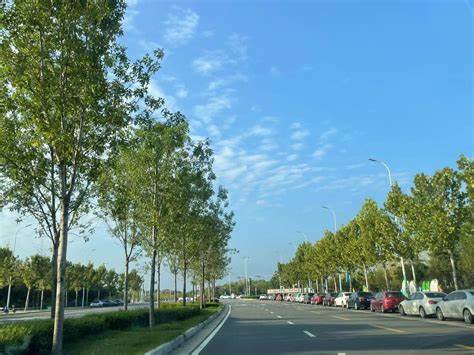- ⒈What's the weather?
- ⒉What are the common weather conditions?
- ⒊What word can be used to replace weather?
Weather includes various meteorological conditions and climate conditions, such as sunny days, cloudy days, cloudy days, rainy days, snowy days, haze days, etc.
Detailed explanation of weather:
1. Sunny weather
Sunny weather refers to weather conditions where the sky is clear, there is no cloud cover, and the sun can directly shine on the ground. This kind of weather usually gives people a bright and comfortable feeling.
2. Cloudy weather
Cloudy weather refers to weather with more clouds in the sky but not completely blocking the sun. In this weather, sunshine can occasionally be seen, but clouds may also bring rain at any time.
3. Cloudy weather
A cloudy day refers to weather when the sky is covered by clouds and the sunlight cannot directly reach the ground. This kind of weather often gives people a dull and depre ssing feeling.
4. Rain and snow weather
Rain and snow weather include rain and snow. When it rains, the clouds in the sky contain enough moisture to fall to the ground in the form of raindrops. Snow occurs when the temperature is low and the moisture in the clouds condenses into snowflakes and falls to the ground.
5. Haze weather
Haze weather refers to weather in which a large number of fine particles are suspended in the air, causing blurred vision and reduced air quality. Smog has a certain impact on human health, so you need to pay attention to protection during haze weather.
In short, weather is the ever-changing meteorological and climatic conditions, including many types. Understanding the characteristics of various weather conditions helps us take appropriate protection and pre parations.

2. Cloudy: Weather with more clouds sometimes blocks the sun, but the temperature is moderate and travel is still convenient.
3. Cloudy days: Clouds are dense, sunlight is difficult to penetrate, and the temperature is relatively cool. Sometimes it is accompanied by haze or light rainfall. Pay attention to the air quality.
4. Rainy days: Precipitation weather can be divided into light rain, moderate rain, heavy rain and heavy rain. Pay attention to rain pre vention and travel safety. Rainwater is beneficial to the ecological environment.
5. Snowy weather: Snowy weather, especially in winter, will make the earth covered with snow. Pay attention to winter traffic safety. Snow helps to keep the air fresh.
6. Thunder and lightning weather: Extreme weather, accompanied by thunder and lightning, strong winds and rain, poses a threat to people and property. Outdoor activities should be avoided to ensure safety.
Sunny, cloudy, dark clouds, few clouds, clear sky, blue sky, sunny, cloudy, warm, sunny, sunny, gentle breeze, refreshing, bright
Warm, warm , hurricane, typhoon, strong wind, strong wind, wind, breeze, sandstorm, storm, fog, haze, humidity, heavy rain
Rainy day, rain, heavy rain, moderate rain, light rain, drizzle, thunderstorm , thunderstorm, severe drought, drought, heat, cold, cold wave, cold wind
Freezing rain, light snow, heavy snow, ice, frost dew, frost, hail, etc.
Extended information:
1. Thunderstorm [léibào]
Thunderstorm.
2. Cloudy day [yīntiān]
A sky full of clouds; a day when the sky is full of clouds.
3. Sunny day [qíngtiān]
There are no clouds or very few clouds in the sky.
4. Cloudy [duōyún]
Or high clouds account for the sky area; it is called cloudy.
5. Sunny [qínglǎng]
There is plenty of sunshine and no clouds or fog.
6. Clear sky [qíngkōng]
A clear sky.
7. Warm weather [héxù]
Warm weather.
8. Yanyang [yànyáng]
Refers to the bright scenery in spring; the bright sun, the scorching sun.
9. Rainy day [yǔtiān]
Rainy weather.
10. Hurricane [jùfēng]
Initially it only refers to tropical cyclones in the Caribbean; later it can refer to any tropical cyclone with strong winds.
11. Typhoon [táifēng]
Refers to the cyclone in the Asia-Pacific waters; the tropical cyclone that occurs in the Philippines or China Sea; the demeanor shown by drama actors on the stage.
12. Hail [bīngbáo]
Ice chunks falling from the sky often appear accompanied by thunderstorms in late spring and summer.
13. Heavy rain [bàoyǔ]
The Chinese Meteorological Department generally calls rain with a rainfall between 50-100 mm within 24 hours a heavy rain.
14. Light rain [xiǎoyǔ]
Refers to the rainfall that is not heavy; the rainfall reaches 10 mm in 24 hours or the rainfall is less than 2.5 mm in one hour.